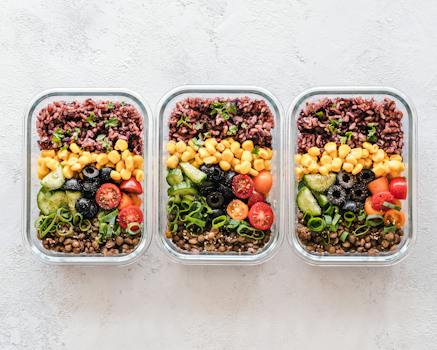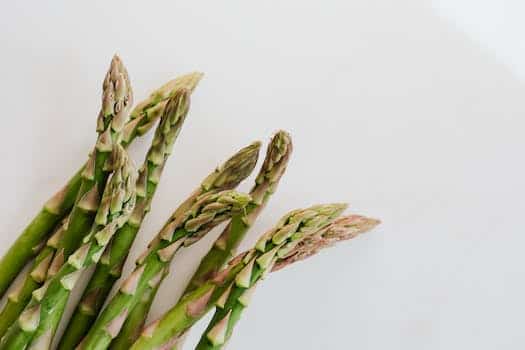
Maintaining a healthy lifestyle can be challenging, especially if you’re on a tight budget. However, eating clean on a budget is possible with some smart planning and a few tips and tricks. In this article, we’ll explore how you can eat healthy without breaking the bank, and how to make the most of your grocery shopping to ensure you’re getting the nutrients you need without overspending.
- 1. Introduction
- 1.1. What does it mean to eat clean?
- 1.2. Why is it important to eat clean on a budget?
- 1.3. How can you achieve clean eating on a budget?
- 2. Plan Your Meals
- 2.1. Create a grocery list
- 2.2. Stick to seasonal produce
- 2.3. Buy in bulk
- 2.4. Plan your meals for the week
- 2.5. Cook meals in batches
- 3. Shop Smart
- 3.1. Shop at farmer’s markets
- 3.2. Compare prices at different stores
- 3.3. Avoid pre-packaged and processed foods
- 3.4. Choose store brands over name brands
- 3.5. Use coupons and buy in-season
- 4. Cook at Home
- 4.1. Cook from scratch
- 4.2. Make use of leftovers
- 4.3. Use affordable protein sources
- 4.4. Choose whole grains
- 4.5. Make your own snacks
1. Introduction
Eating clean is a lifestyle that promotes overall health and wellbeing. It involves consuming whole, unprocessed foods that are rich in nutrients and free from harmful additives. However, the misconception that eating healthy is expensive often deters people from adopting this lifestyle. In this article, we will explore tips and tricks for eating clean on a budget, making it easier for you to lead a healthy life without breaking the bank.
1.1. What does it mean to eat clean?
Eating clean refers to consuming foods that are minimally processed and contain whole, natural ingredients. This means avoiding foods that are high in sugar, saturated and trans fats, and artificial additives. Eating clean also involves choosing foods that are rich in nutrients and provide the body with the fuel it needs to function optimally.
1.2. Why is it important to eat clean on a budget?
Eating clean on a budget is important for many reasons. First and foremost, consuming a diet rich in whole, nutrient-dense foods can significantly improve overall health and wellbeing. Eating clean can also help prevent chronic diseases such as heart disease, type 2 diabetes, and certain types of cancer. Additionally, eating clean can boost energy levels, improve mental clarity, and promote healthy weight management. However, many people believe that eating clean is expensive and therefore unattainable. This is simply not true. With a little planning and creativity, it is possible to eat clean on a budget. In fact, doing so can actually save money in the long run by reducing healthcare costs and increasing productivity.
1.3. How can you achieve clean eating on a budget?
Eating clean on a budget can seem like a daunting task, but it is possible to achieve. With a little planning and creativity, you can enjoy healthy and nutritious meals without breaking the bank. In this article, we will explore some tips and tricks to help you achieve clean eating on a budget. From meal planning and shopping strategies to cooking hacks and recipe ideas, we’ve got you covered. So, let’s dive in and discover how you can eat clean and stay within your budget!
2. Plan Your Meals
One of the best ways to eat clean on a budget is to plan your meals in advance. By doing this, you can make sure you are buying only the items you need, reducing food waste, and avoiding impulse purchases. Start by looking at what ingredients you already have in your fridge or pantry, and build your meals around those. Then, make a list of the additional items you need to buy. Stick to the list when you go to the grocery store and avoid buying anything that is not on it. This will help you stay on budget and avoid unnecessary spending.
2.1. Create a grocery list
Creating a grocery list is an essential step in planning your meals for eating clean on a budget. Start by making a list of all the healthy foods you enjoy eating and that fit within your budget. Next, plan out your meals for the week based on the ingredients you have on your list. Be sure to include a variety of fruits, vegetables, lean proteins, and whole grains to ensure your meals are balanced and nutritious. Don’t forget to check your pantry and fridge for any items you already have on hand to avoid unnecessary purchases. By planning ahead and sticking to your grocery list, you can save money and eat healthy at the same time.
2.2. Stick to seasonal produce
When it comes to eating clean on a budget, one of the best tips is to stick to seasonal produce. Not only is it cheaper, but it’s also fresher and more flavorful. Plus, buying what’s in season supports local farmers and reduces your carbon footprint. Plan your meals around what’s currently available at the farmers market or in the produce section of your grocery store. Get creative with recipes and don’t be afraid to try new fruits and vegetables. Eating a variety of colorful produce is a great way to ensure you’re getting all the nutrients your body needs.
2.3. Buy in bulk
Buying in bulk is a great way to save money and eat healthy. When you buy in bulk, you can often get better deals on fruits, vegetables, whole grains, and lean proteins. Plus, buying in bulk means that you can portion out your meals and snacks ahead of time, which can help you stay on track with your healthy eating goals. Make sure to plan your meals ahead of time so that you know what ingredients you need to buy in bulk. This will help you avoid waste and save even more money in the long run.
2.4. Plan your meals for the week
Planning your meals for the week is a great way to eat clean on a budget. By deciding ahead of time what you will eat, you can avoid the temptation of fast food or unhealthy snacks. Start by making a list of healthy meals and snacks that fit your budget and dietary needs. Look for recipes that use affordable ingredients and can be prepared in bulk. Cook larger portions and freeze leftovers for later in the week. This will save you time and money, and ensure that you always have a healthy meal on hand. Remember, eating clean doesn’t have to be expensive or time-consuming. With a little planning and preparation, you can make healthy eating a part of your daily routine.
2.5. Cook meals in batches
One of the best ways to save money and time when eating clean on a budget is to cook meals in batches. This means making larger portions of your meals and storing them in the fridge or freezer for later. Not only does this save you money on groceries, but it also saves you time in the kitchen. When you have pre-made meals ready to go, you won’t be tempted to order takeout or eat unhealthy snacks. Planning your meals ahead of time and cooking in batches is a great way to stay on track with your healthy eating goals.
3. Shop Smart
One of the biggest misconceptions about eating clean is that it has to be expensive. In reality, there are many affordable options for those looking to maintain a healthy lifestyle. To shop smart, start by creating a meal plan and grocery list before heading to the store. This will help you avoid buying unnecessary items and sticking to your budget. Look for sales and discounts on healthy items, and consider buying in bulk for savings. Don’t forget to check out your local farmers market for fresh, seasonal produce at affordable prices. Finally, don’t be afraid to swap out expensive items for more budget-friendly alternatives. For example, quinoa can be replaced with brown rice or lentils, and fresh salmon can be swapped for canned tuna. With a little planning and creativity, eating clean on a budget is definitely achievable.
3.1. Shop at farmer’s markets
Shopping at farmer’s markets is a great way to eat clean on a budget. Not only are the fruits and vegetables typically cheaper than grocery store prices, but they are also fresher and more likely to be locally grown. By purchasing produce that is in season, you can also save money and support local farmers. It’s important to do your research and know what produce is in season in your area before heading to the market. Additionally, bring cash and reusable bags to avoid extra fees and reduce waste.
3.2. Compare prices at different stores
One of the best ways to eat clean on a budget is to compare prices at different stores. It may be tempting to just buy everything at one store for convenience, but taking the time to shop around can save you a significant amount of money. Look for sales and discounts, and consider buying in bulk for items you use frequently. Don’t forget to check out local farmers markets and co-ops for fresh, affordable produce. By shopping smart, you can stick to your healthy eating goals without breaking the bank.
3.3. Avoid pre-packaged and processed foods
One of the key principles of eating clean on a budget is to avoid pre-packaged and processed foods. These foods are often loaded with preservatives, artificial flavors, and other additives that can be harmful to your health. They also tend to be more expensive than whole, natural foods. When shopping for groceries, focus on fresh fruits and vegetables, lean proteins, whole grains, and healthy fats. Look for sales and discounts on these items, and consider buying in bulk to save money in the long run. By avoiding pre-packaged and processed foods, you’ll not only save money, but also improve your overall health and well-being.
3.4. Choose store brands over name brands
When it comes to shopping for groceries, choosing store brands over name brands can often save you money without sacrificing quality. Store brands are typically cheaper because they don’t spend as much on advertising or packaging. However, they’re often just as good as name brands in terms of taste and nutrition. In fact, many store brands are manufactured by the same companies that make name brands. So next time you’re at the grocery store, consider giving the store brand a try and see how much you can save.
3.5. Use coupons and buy in-season
Using coupons and buying in-season are two great ways to save money while eating clean. Look for coupons in your local newspaper or online, and use them to purchase healthy foods like whole grains, fresh produce, and lean proteins. When shopping for produce, try to buy fruits and vegetables that are in season. Not only will they taste better, but they will also be more affordable. Plus, buying in-season produce supports local farmers and reduces the environmental impact of shipping produce long distances. By using coupons and buying in-season, you can eat clean and healthy without breaking the bank.
4. Cook at Home
Cooking at home is one of the best ways to eat clean on a budget. When you cook your own meals, you have control over the ingredients that go into your food. This means that you can avoid added sugars, preservatives, and other unhealthy additives that are commonly found in processed foods. You can also choose to buy fresh, whole foods that are in season, which are often more affordable than out-of-season produce. Additionally, cooking at home allows you to portion out your meals, which can help you save money and avoid food waste. By planning your meals in advance and choosing healthy, budget-friendly ingredients, you can eat clean and feel great without breaking the bank.
4.1. Cook from scratch
Cooking from scratch is a great way to eat clean on a budget. By preparing your own meals, you can control the ingredients and ensure that you are consuming nutritious foods. It may seem daunting at first, but with a little planning and practice, cooking at home can be a fun and rewarding experience. Start with simple recipes and gradually work your way up to more complex dishes. Don’t be afraid to experiment with new ingredients and flavors. With a little creativity, you can make delicious and healthy meals that are easy on your wallet.
4.2. Make use of leftovers
Making use of leftovers is a great way to save money while still eating healthy. Instead of throwing out leftover vegetables or meats, try incorporating them into new meals throughout the week. For example, leftover roasted chicken can be shredded and added to a salad or used as a topping for a homemade pizza. Leftover roasted vegetables can be pureed into a soup or added to a stir-fry. Get creative with your leftovers and you’ll be surprised at how many healthy and delicious meals you can create without spending extra money at the grocery store.
4.3. Use affordable protein sources
When it comes to eating clean on a budget, one of the most important things to consider is the cost of protein. While many high-quality protein sources like grass-fed beef and wild-caught salmon can be quite expensive, there are plenty of affordable options available as well. One great way to save money on protein is to focus on plant-based sources like beans, lentils, and tofu. These options are not only affordable, but also packed with nutrients and protein. Another option is to choose cheaper cuts of meat like chicken thighs or ground turkey instead of more expensive options like chicken breasts or steak. By using these affordable protein sources in your meals, you can eat clean and healthy without breaking the bank.
4.4. Choose whole grains
When it comes to eating clean on a budget, opting for whole grains is a smart choice. Not only are they affordable, but they are also packed with nutrients that your body needs. Whole grains are a great source of fiber, which can help you feel full and satisfied, and they are also rich in vitamins and minerals. When shopping for whole grains, look for options like brown rice, quinoa, and whole wheat pasta. These versatile ingredients can be used in a variety of dishes, from salads to stir-fries, making them a great addition to any meal. By choosing whole grains, you can eat healthy without breaking the bank.
4.5. Make your own snacks
One of the best ways to save money while eating clean is to make your own snacks at home. Not only is it cheaper, but you also have complete control over the ingredients and can avoid all the added sugars and preservatives that are often found in store-bought snacks. Some easy and healthy snack options include homemade granola bars, roasted chickpeas, kale chips, and fruit and veggie slices with hummus. Take a little time each week to meal prep and make a batch of your favorite snacks to have on hand throughout the week.
Conclusion
In conclusion, eating clean on a budget is not only possible but also beneficial for your health. By following these tips and tricks, you can save money while still enjoying nutritious and delicious meals. Don’t let a tight budget hinder your healthy lifestyle. With a little planning and creativity, you can eat clean and live well.


